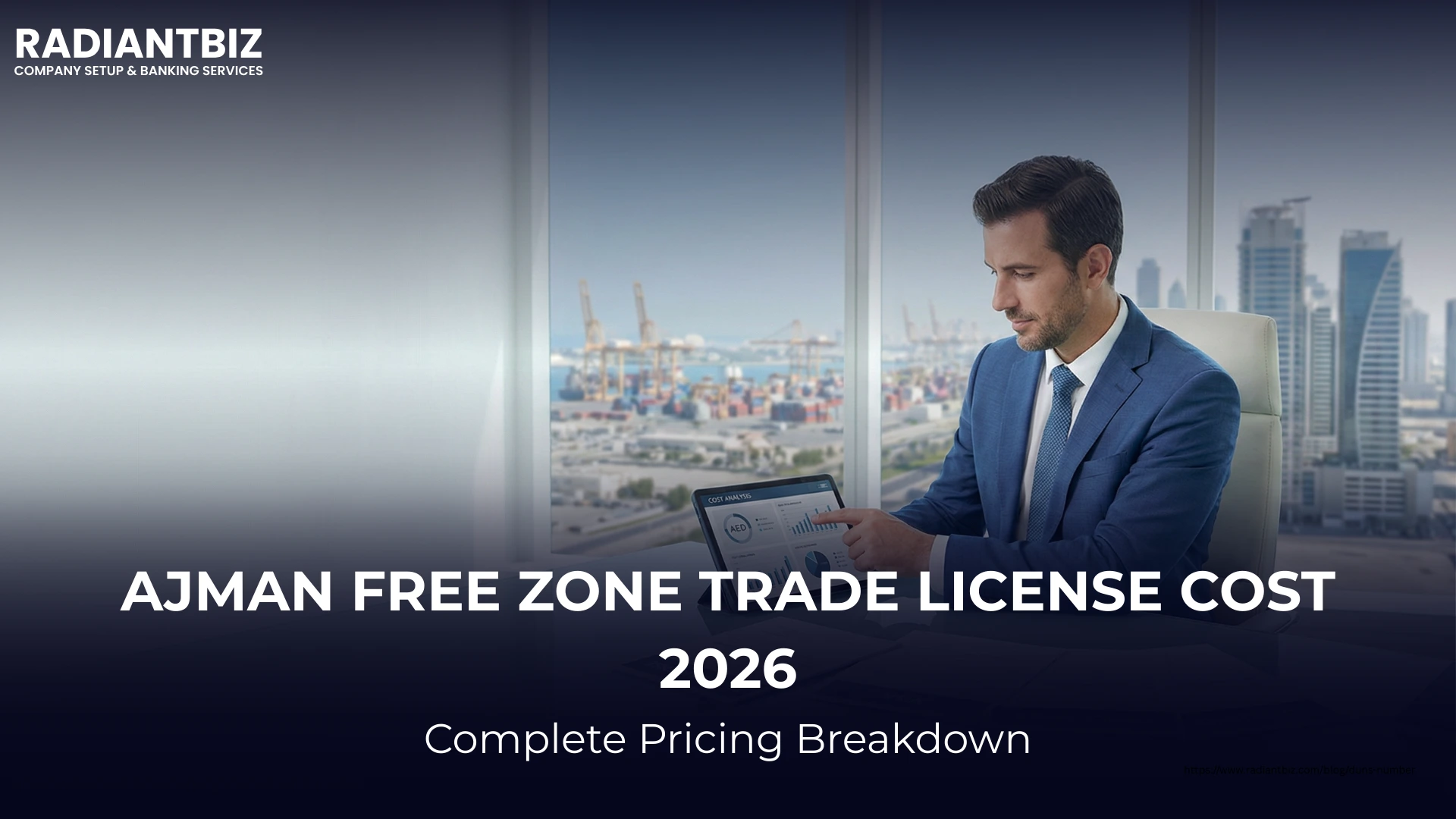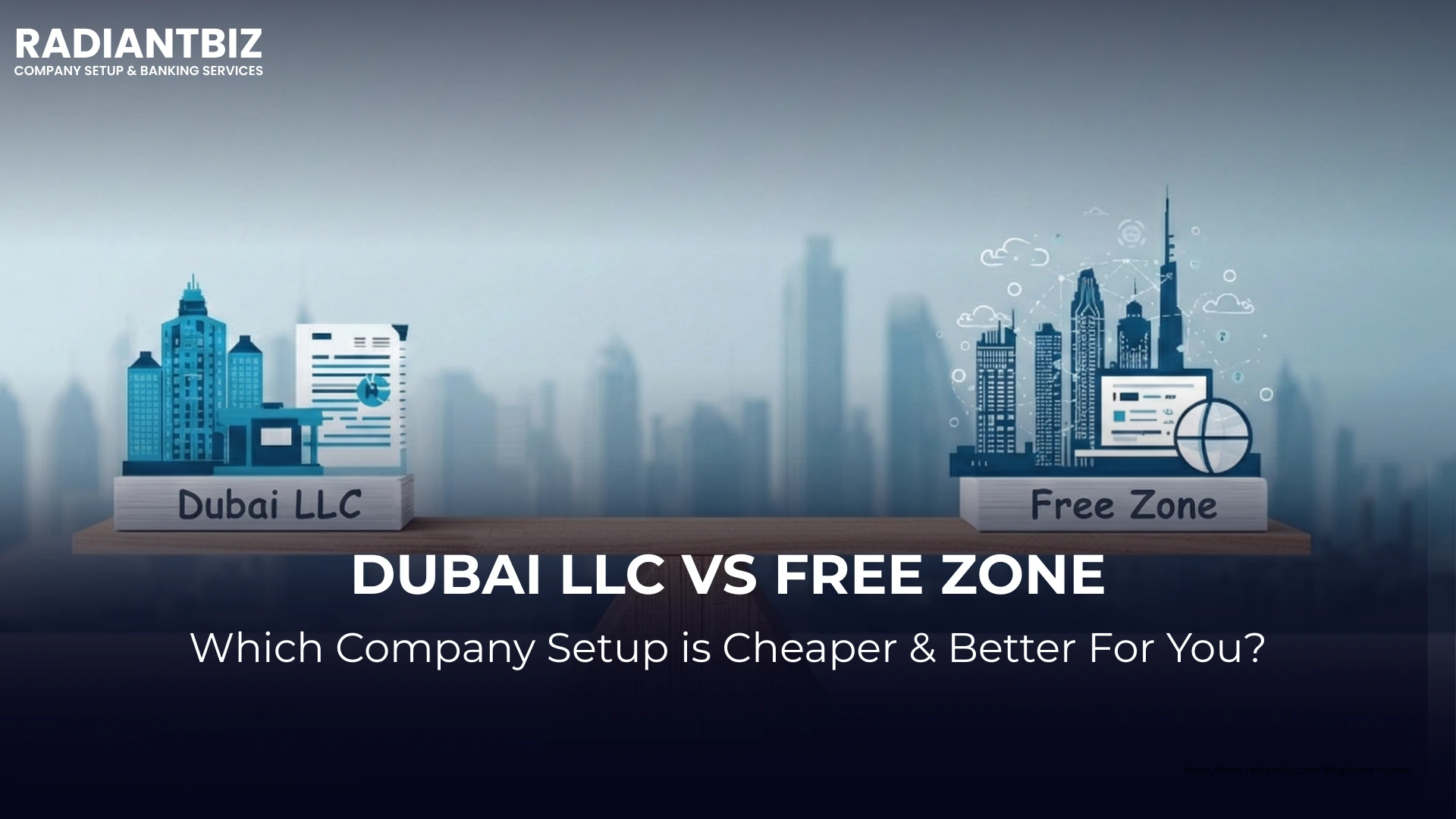Difference Between Mainland, Freezone & Offshore Companies in UAE – Choose Best Option For You


Table of Contents
You must understand the terms “mainland,” “freezone,” and “offshore companies in UAE” before beginning a business in the United Arab Emirates (UAE). All three jurisdictions have advantages and disadvantages, as well as commercial prospects for entrepreneurs with various agendas. The type of corporate entity, the company’s commercial activity, and your anticipated trading partners can all influence your priorities. As a result, in order to conduct business in the UAE, you must have a thorough understanding of these jurisdictions in order to make informed decisions Let us begin by learning some fundamental facts about each jurisdiction.
What is a Mainland Company in UAE?
An onshore company in the UAE is also known as a mainland company. The process of mainland company formation in UAE has been granted a license by the Department of Economic Development (DED) of the relevant emirate, allowing it to operate freely in the local market as well as outside the UAE.
What is Freezone Company in UAE?
In the United Arab Emirates, there are more than 40 free zones. It is incorporated in an emirate’s specified jurisdiction where the company is permitted to conduct business inside the same free zone. Most entrepreneurs who want to save money on taxes choose Dubai’s freezone company formation as government provides numerous perks and incentives to businesses that set up shop in the zone.
What is an Offshore Company in the UAE?
An offshore company in the UAE refers to a business that is incorporated in a specific jurisdiction within the UAE but does not have a physical presence in that jurisdiction. Offshore companies do not need to establish a physical office within the country, and they typically operate with the parent company located outside the UAE. This structure is advantageous for international businesses looking to benefit from the UAE’s tax-friendly environment, without establishing an operational base within the country.
However, it's important to note that converting an offshore company to an onshore (mainland) company is not possible. Offshore companies are governed by different regulations, legal frameworks, and business laws compared to free zone or mainland companies.
Key Differences Between Offshore, Mainland, and Freezone Companies
Ownership
- Mainland: Expatriates can own 100% of a mainland company.
- Freezone: Expatriates can also own 100% of the company in a Freezone.
- Offshore: Expatriates can have full ownership if the company is based outside the UAE. Offshore companies cannot have a physical presence in the UAE.
Office Space
- Mainland: A mainland company must have at least 200 square feet of real office space.
- Freezone: A Freezone company does not require office space. Businesses can operate from home or use virtual offices.
- Offshore: Offshore companies cannot have a physical office in the UAE. They can operate from a location outside of the UAE.
Business Scope
- Mainland: Mainland companies are allowed to operate across the UAE and within its Free Zones.
- Freezone: Freezone companies are generally restricted to conducting business within their specific Free Zone.
- Offshore: Offshore companies can freely do business outside the UAE, but cannot conduct business within the UAE.
Audit Requirements
- Mainland: Mainland companies are required to prepare an annual audit of their financials.
- Freezone: Not all Freezone companies need to be audited, although certain types, like Free Zone Companies (FZCO) and Free Zone Establishments (FZE), are subject to mandatory audits.
- Offshore: Offshore companies are not required to prepare audits, but they can choose to do so if they wish to monitor their financials.
Visas
- Mainland: Resident visas can be issued based on the size of the office or work premises.
- Freezone: Similarly, Freezone companies can issue resident visas based on their office size.
- Offshore: Offshore companies do not issue residency visas, as there is no office space involved.
Capital Requirement
- Mainland: The capital requirement varies depending on the legal structure and nature of the business.
- Freezone: Capital requirements for Freezone companies depend on the specific Freezone and business type.
- Offshore: There is no minimum capital requirement for offshore companies in the UAE.
Privacy and Secrecy
- Mainland: Details of mainland companies are publicly available upon request.
- Freezone: Freezone company details can also be accessed by the public upon request.
- Offshore: Offshore company owners, directors, and shareholders enjoy a high level of privacy, with their details not being made public.
Government Authorities for Company Setup
- Mainland: Setting up a mainland company requires approval from multiple authorities such as the Department of Economic Development (DED), Ministry of Labor, Dubai Municipality, and others.
- Freezone: Freezone companies are regulated by the Freezone authority and do not require approval from external government bodies.
- Offshore: Offshore companies are typically formed under the Ras Al Khaimah (RAK) or Jebel Ali Free Zone (JAFZA) authority, depending on the jurisdiction.
Cost of Company Setup
- Mainland: The cost for setting up a mainland company is typically high due to the need for office space and more extensive paperwork.
- Freezone: Setting up a Freezone company is generally more affordable than a mainland setup, though costs can vary based on the Freezone.
- Offshore: Offshore company setup is the least expensive option, offering lower incorporation and operational costs.
How Radiant Biz is the ideal business consultant for you?
In matters like mainland company formation in Dubai, people tend to get confused and get in chaos due to several rules, regulations, and multiple requirements. This is the time when people tend to look for an expert. A lot of chaos can be avoided if guidance is taken from the initial state of the commencement of the business. Each venture may have unique requirements like location, customer convenience, logistical feasibility, and banking services. We at RadiantBiz strive to understand these unique precepts and provide expert and reliable consultation to our clients with updated laws and governing regulations, awareness of their rights, and cost-effective business solutions tailor-made to their business needs and budget. RadiantBiz has a variety of packages for clients who intend to stay in the area for a long time. Expats and foreigners can get long-term visas and have their visas renewed with the help of the firm.Pre-investment business advising services on legal structuring, licensing, and regulatory problems are also available. This can involve assistance with obtaining a professional, trade, or industrial license, as well as other services.



2.png)




.avif)